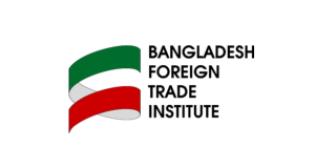Bangladesh's impending graduation from the Least Developed Country (LDC) status marks a significant milestone in its economic development journey. However, this transition also presents formidable challenges particularly the loss of preferential market access, trade benefits and concessional financing that have been crucial for economic growth. In this backdrop, Bangladesh should strategically leverage trade agreements to mitigate these challenges and sustain its development momentum. This article delves into the significance of trade agreements and their strategic importance in overcoming graduation challenges of Bangladesh focusing on the experiences and strategies of countries like Vietnam and Cambodia.
It is worth mentioning that according to the definition of Regional Trade Agreement Policy (RTA), 2022, Bangladesh, RTA means any reciprocal trade agreement between two or more countries, trade blocs, not necessarily belonging to the same region. The WTO RTAs database has cited that there are 375 Regional Trade Agreements (RTAs) in force as of May 2024 showing a significant increase over the years. [1]
Figure: Evolution of Regional Trade Agreements in the World, 1948-2024
LDC Graduation Challenges
Graduating from LDC status means Bangladesh may no longer enjoy preferential access to key markets which currently allows for reduced tariffs and duty-free entry for its exports. This preferential treatment has been instrumental in boosting the competitiveness of Bangladesh's export sectors especially ready-made garments (RMGs), which constitute the lionshare of the country's export revenue. The loss of these advantages could lead to higher tariffs, making Bangladeshi goods less competitive globally and potentially reducing export earnings.
Additionally, Bangladesh may face challenges in attracting foreign direct investment (FDI) as the perceived risk associated with its economic environment might increase without the protective benefits of LDC status. This scenario necessitates proactive measures to ensure continued growth and integration into the global economy.
Bangladesh’s Journey Towards Trade Agreements
Bangladesh has actively pursued various trade agreements to bolster its economic relation and enhance trade opportunities. The country has successfully concluded one bilateral Preferential Trade Agreement (PTA), two Regional Free Trade Agreements (FTAs), and five regional PTAs. These agreements are as follows:
- Bilateral PTA: Bangladesh-Bhutan Preferential Trade Agreement (BB-PTA), which was signed on December 6, 2020, and implemented from July 1, 2022. [2]
- Regional FTAs: South Asian Free Trade Area (SAFTA), an agreement that succeeded the 1993 SAARC Preferential Trading Arrangement and came into force in 2006 [3] and Bay of Bengal Initiative for Multi-Sectoral Technical and Economic Cooperation (BIMSTEC) which aims to promote free trade in the region.
- Regional PTAs: Asia-Pacific Trade Agreement (APTA), Trade Preferential System among OIC Countries (TPS-OIC), Preferential Trade Agreement among Developing Countries (D-8 PTA), South Asian Preferential Trade Agreement (SAPTA), Global System of Trade Preferences among Developing Countries (GSTP).
To further strengthen its trade ties, Bangladesh has developed a Regional Trade Agreement (RTA) Policy in 2022. Following this policy, Bangladesh has initiated negotiations for two major agreements: An Economic Partnership Agreement (EPA) with Japan and a Comprehensive Economic Partnership Agreement (CEPA) with India. Moreover, Bangladesh has conducted twenty-six (26) feasibility studies to initiate PTA/FTA/CEPA/EPA with the major trading partners.
Trade agreements may offer a viable solution for Bangladesh to counteract the adverse effects of LDC graduation. These agreements may help the country secure favorable trade terms, enhance market access and attract investment. Here are several ways trade agreements can benefit Bangladesh:
- Securing market access: Trade agreements may help Bangladesh maintain access to critical markets by negotiating terms that ensure reduced tariffs and continued preferential treatment. For instance, Bangladesh may pursue agreements with major trading partners like United Sates of America (USA), European Union (EU), India, Canada, Japan, China, Australia among others to retain favorable market conditions for its exports considering the factors like scope & coverage, barriers to trade, etc.
- Trade diversification: By entering into trade agreements with feasible countries, Bangladesh can diversify its trade portfolio, reducing dependence on a limited number of markets. This diversification can spread economic risks and open up new avenues for trade and investment.[4]
- Attracting foreign direct investment (FDI): Trade agreements often include provisions that create a more stable and predictable investment climate. By guaranteeing certain standards and protections for investors, these agreements can make Bangladesh an attractive destination for FDI, which is crucial for economic development and job creation.
- Enhancing competitiveness: Modern trade agreements typically incorporate measures to improve trade facilitation such as streamlining customs procedures, reducing non-tariff barriers and fostering cooperation on standards and regulations. These enhancements can reduce the cost and complexity of trade, boosting the competitiveness of Bangladeshi businesses on the global stage. [5]
Strategic Considerations for Effective Trade Agreements
In order to maximize the benefits of trade agreements, Bangladesh needs to adopt a strategic approach in its negotiation and implementation:
- Identify key partners: Prioritize negotiations with countries that represent significant markets for Bangladeshi exports. This includes not only developed economies but also emerging markets with high growth potential. Moreover, participation in regional trade agreements can provide access to larger markets and enhance bargaining power in global trade negotiations.
- Prioritize comprehensive trade agreements: Bangladesh should focus on negotiating trade agreements that go beyond tariff reductions to include provisions on services, investments, labor, and environmental standards. This approach will help diversify their economic base and enhance resilience. In this endeavor, upholding high standards in labor, environmental protection, and quality can ensure long-term trade sustainability and compliance with global norms, which is increasingly important in modern trade agreements.
- Strengthen trade infrastructure: Developing robust trade infrastructure including efficient customs procedures and logistics, can significantly improve trade performance and reduce costs.
- Enhance trade facilitation measures: Simplifying trade procedures and reducing non-tariff barriers can make exports more competitive. Emphasizing digital trade facilitation can also streamline processes and reduce delays.
- Comprehensive stakeholder engagement: Ensure that the negotiation process involves a wide range of stakeholders including government agencies, private sector representatives, trade unions and civil society. This inclusive approach can help address diverse interests and anticipate potential challenges.
- Build institutional capacity: Strengthen the institutions responsible for trade policy and negotiations. This involves training negotiators, improving regulatory frameworks and ensuring effective enforcement of trade agreements.
- Monitor and evaluate the impact of trade agreement: Establish mechanisms to regularly monitor and evaluate the impact of trade agreements. This will enable Bangladesh to make necessary adjustments and ensure that the agreements deliver the intended benefits.
Learning from Other Countries
Vietnam and Cambodia are two major competitive countries considering export baskets, target markets, geographical and socio-economic conditions for Bangladesh. Bangladesh can draw valuable lessons from other countries that have successfully leveraged trade agreements:
Vietnam: Vietnam's experience in negotiating and implementing trade agreements provides a useful model. The country has successfully concluded several high-profile agreements such as the Comprehensive and Progressive Agreement for Trans-Pacific Partnership (CPTPP) and the EU-Vietnam Free Trade Agreement (EVFTA). These agreements have helped Vietnam integrate into global supply chains and attract significant foreign investment. For instance, Vietnam's exports to the EU accounted for almost two-thirds of the total export figure to the EU (€34.4 billion[6]). This suggests a substantial portion of trade is facilitated through FTAs.
Cambodia: Although still an LDC, Cambodia is actively pursuing trade agreements to prepare for its eventual graduation. By focusing on regional agreements and partnerships, Cambodia aims to mitigate the impact of losing LDC benefits and sustain its economic growth trajectory[7].
Conclusion
Graduating from LDC status presents both challenges and opportunities for Bangladesh. While the loss of preferential market access poses significant risks, strategic engagement in trade agreements can provide a robust framework to mitigate these challenges. By securing favorable trade terms, diversifying markets and enhancing competitiveness, trade agreements can help Bangladesh navigate the complexities of LDC graduation and sustain its economic growth. As Bangladesh prepares for this transition, a proactive and strategic approach to trade negotiations will be essential for a smooth and successful journey.
References:
[1] RTAs database (retrieved on July 16, 2024), WTO
[2] https://thimphu.mofa.gov.bd/en/site/page/trade-commerce-and-investment).
[3] https://www.un.org/ldcportal/content/south-asian-free-trade-area-safta.
[4] CPD, graduating from the LDC Group: challenges facing Bangladesh, available at: https://cpd.org.bd/graduating-from-the-ldc-group-challenges-facing-bangladesh
[5] LightCastle Partners, Graduating LDC Status: Challenges and the Way Forward, available at: https://www.lightcastlebd.com/insights/2022/10/graduating-ldc-status-braving-challenges-and-the-way-forward-for-bangladesh
[6] Trade and Investment, available at https://www.eeas.europa.eu/vietnam/the-eu-and-vietnam_en?s=184 (retrieved on 28 July 2024)
[7] Bangladesh Cabinet Division, Effect of Graduation from LDC, (retrieved on July 16, 2024) Available at: https://cabinet.portal.gov.bd/sites/default/files/files/cabinet.portal.gov.bd/page/62a0e968_3a2d_441d_9e78_7714af9fbac4/Challanges%20after%20%20LDC%20Graduation%20concept%20Paper%20English.docx


